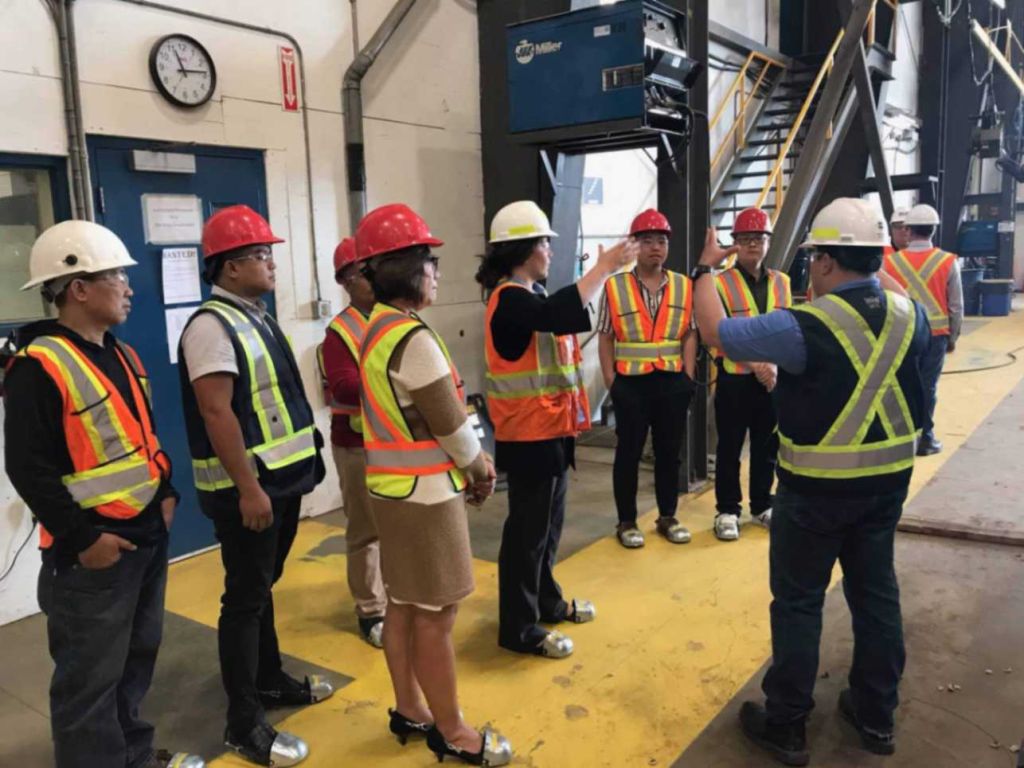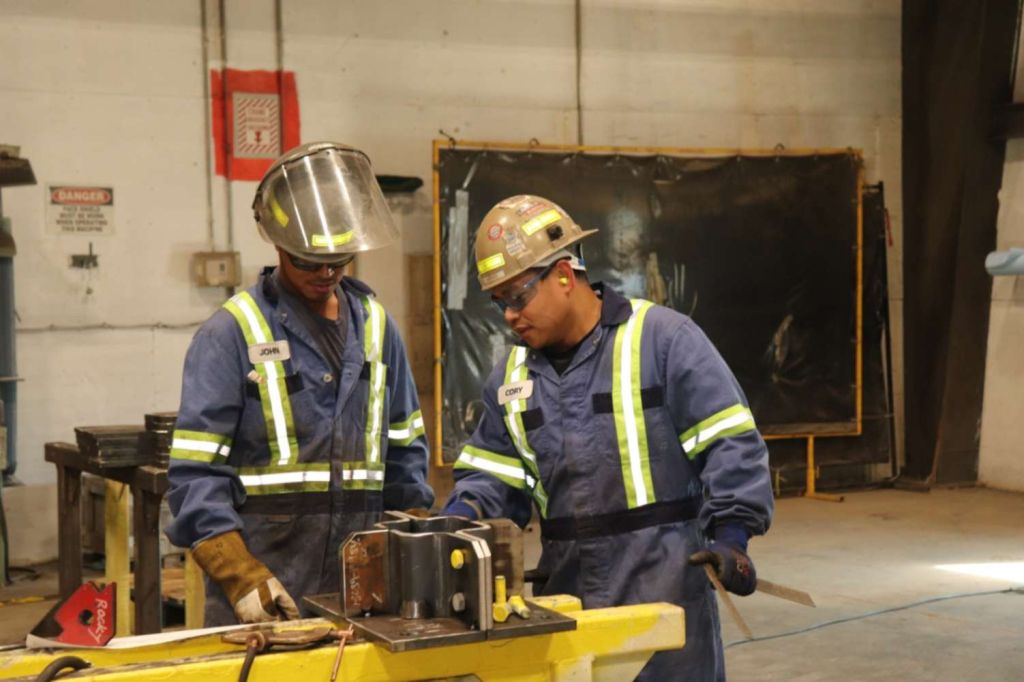Building a Supply Chain
with Integrity
Saskarc’s Report on Forced and Child Labour in Supply Chains
in every weld and beam.
TL;DR – What You Need to Know
Integrity leads to trust. It also shows we care. And integrity cannot be selective. It has to be present in every action we take. The supply chain is a critical part of our temporary steel works industry and susceptible to forced and child labour. This article shares our proactive approach to remove unethical labour practices from our global supply chain. It talks about the systems we have thought through and put in place. And finally, the real impact of embedding the concept of human rights in the steel fabrication industry – especially in temporary early works. We have also attempted to answer commonly asked questions by suppliers and partners.
Why Addressing Forced and Child Labour in Steel Supply Chains Matters
Speed, scale and precision are vital in the infrastructure and steel fabrication sectors. But so is integrity.
With steel supply chains spanning continents and cultures, risks arise due to differing legal standards and possibilities of exploitative labour. Saskarc, as a leader in temporary steel works / support of excavation, understands that ethical sourcing is a business imperative. And it is not optional.
As part of our effort to ‘do the right thing’, we ran a full assessment of our entire supply chain. Covering our entire global operations and suppliers, we reviewed and took action to ensure our steel is built on ethics and not exploitation. All of this under Canada’s new Fighting Against Forced Labour and Child Labour in Supply Chains Act. And we are happy to share that we passed with flying colors.
Our recently published compliance report, that you can read here, is a declaration of our commitment to human dignity — not just completing a regulatory requirement.
This is how we did it.

From fabrication to sourcing, Saskarc holds every link in our supply chain to the highest standard. Our supplier code of conduct reinforces our promise to deliver ethically driven steel solutions.
Inside Our Proactive Actions: Awareness, Policy & Prevention
At the beginning of 2024, we at Saskarc decided to deepen our ESG (Environmental, Social & Governance) commitments. The strategy was to take targeted, practical steps to eliminate the risks of forced and child labour from our operations.
To do this we focused on the three pillars of effective change:

At Saskarc, HR, Operations, and Procurement play a critical role in ethical sourcing. That’s why we’ve implemented mandatory training to help these teams detect and address risks of forced labour in our supply chain – now a permanent part of our continuous improvement.
Education through Training and Awareness
We identified Human Resources (HR), Operations and Procurement departments as the most influential and at risk teams.
Employees in these functions are at the frontline of our supply chain and hence can have the greatest impact. We started by launching a mandatory training for all colleagues across these three departments. Training them to identify, flag and mitigate potential risks related to forced labour in our procurement processes and supply chain.
The training process is now enshrined as part of our continuous improvement initiatives. And this means we will never lose sight of our goal.
Policy Development and Reporting
In consultation with stakeholders and experts, we implemented a formal Anti-Modern Slavery Policy. This explicitly outlines our zero-tolerance stance on forced and child labour. Grounded in international labour standards and in accordance with Canadian law, the policy is clear and enforceable. We also incorporated all reporting requirements under the federal Fighting Against Forced Labour and Child Labour in Supply Chains Act (also known as the Modern Slavery Act or Bill S-211) of Canada.
We believe ethical sourcing doesn’t live in legal documents. It lives in day to day decisions. Decisions that are based on the right values and awareness of our responsibility to them. We reinforced our ethical approach by continuously raising awareness of this issue internally – at every level of the organization. Building a culture of vigilance to ensure we don’t slip up.
In short, 2024 was about laying a firm foundation – so that our ethical standards in steel supplier chains are as strong as the structures we help build.

What the Code Covers and Why It’s Critical
It is (comparatively) easy to implement best practices within the organization. Particularly because we can control the steps, and drive outcomes we need. But we know our responsibilities do not end there.
The job is incomplete if our high standards are not implemented across our entire supplier eco-system. To do so, we implemented a range of tools to extend our standards across our network of partners. Here are a few of them:
Supplier Code of Conduct:
We integrated child and forced labour clauses into our purchase orders and subcontracts.
Our supplier code of conduct for temporary steel works is now a living part of our contracts – not an afterthought.
Vendor Audits:
Using a mix of virtual and in-person evaluation, we at Saskarc began auditing a minimum of eight suppliers annually. Our Procurement and QA teams now include forced labour compliance as a standard part of their onboarding checklist.
Pre-qualification Requirements:
Before we start work, new suppliers are asked to answer detailed questions on their labour practices. If their answers raise concerns, we follow up with deeper evaluation or disengage.
Continuous Improvement:
We do not rest on our laurels. Every single day our team works on continuously improving our procedures. As part of that initiative, we are building tools to review internal policies regularly and evaluate our impact. Our aim is not just to be compliant – we want to set the benchmark for others in the industry.
Steel is Stronger with Integrity
Trust is a core part of our brand. And trust is built by behavior. Ethics isn’t an add-on at Saskarc – it’s embedded in how we operate. The 2024 report on our approach to Forced and Child Labour in Supply Chains, shows our commitment not only to compliance, but to leading the way in ethical steel works.
Every weld, strut, waler, and beam we create is backed by our values. Our clients know our steel solutions are the best. Not just because it is backed with innovative and hard working team members providing cost effective solutions, but because they get the Saskarc guarantee of always doing the right thing.

FAQs: What Suppliers and Partners Often Ask
It’s a Canadian law that requires businesses to report publicly on efforts to identify and eliminate forced or child labour in their supply chains. You can read about it on the Public Safety Canada website here.
As of the 2024 reporting period, we have not identified any cases of forced or child labour. That said, we remain proactive in prevention and verification.
We work with suppliers to improve where possible. But if issues remain unresolved, we reserve the right to terminate the relationship.
No. Every supplier, regardless of location, is held to the same high ethical standards.
Audits may be virtual or in-person and include a review of labour practices, documentation, and site visits where necessary.
No. We expect our direct suppliers to ensure their subcontractors also adhere to these standards.


